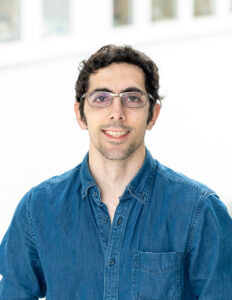24.5.2023
Doctoral Thesis on the Stress Responses of Heat Shock Factors and their Connection to Cell Adhesion

Licenciado Alejandro Da Silva Nascimento’s doctoral thesis in Cell Biology will be put forth for public defence at Faculty of Science and Engineering at Åbo Akademi University.
The thesis is entitled Intertwining Cell Adhesion, Gene Expression, and Stress.
The public defence of the doctoral thesis takes place on 1 May 2023, 1 PM, in auditorium Argentum, Aurum, Henrikinkatu 2, Turku. Research Director Maria Vartiainen, University of Helsinki, will serve as opponent and Professor John Eriksson, Åbo Akademi University, as custos.
Summary
In our bodies, cells face various challenges from their surroundings that can disrupt the normal functioning of proteins. To cope with these challenges, cells have a special set of proteins called heat shock factors (HSFs) that help them adapt and survive. When cells experience stress, HSFs become active and trigger the production of molecular chaperones, also known as heat shock proteins. These chaperones assist in fixing proteins that have lost their structure, helping them return to their correct shape.
This thesis explores the roles of HSF1 and HSF2, two members of the HSFs family, in specific stress responses and their connection to cell adhesion. The research revealed that HSF2 plays a critical role in prolonged stress situations, where it ensures that cells maintain their connections with each other for survival. The function of HSF1 and HSF2 in heat shock and oxidative stress was also compared. Surprisingly, it was found that they regulate different sets of genes, which are not limited to molecular chaperones, depending on the type of stress. Additionally, the interactions between HSF2 and other proteins within a specific tissue context were examined. This led to the identification of a protein called TLN1 as the first partner of HSF2 related to cell adhesion. Finally, an interesting discovery was made: TLN1 can enter the cell nucleus and regulates gene expression, introducing new dimensions to study the role of this protein in health and disease. By studying these intricate connections between cell adhesion and the roles of HSF1 and HSF2 in stress responses, we gain a better understanding of how cells adapt and survive under challenging conditions.
Alejandro Da Silva Nascimento was born in 1989 in Caracas, Venezuela. He can be reached by email alejandro.dasilvanascimento@abo.fi.
The doctoral thesis can be read online through the Doria publication archive.
